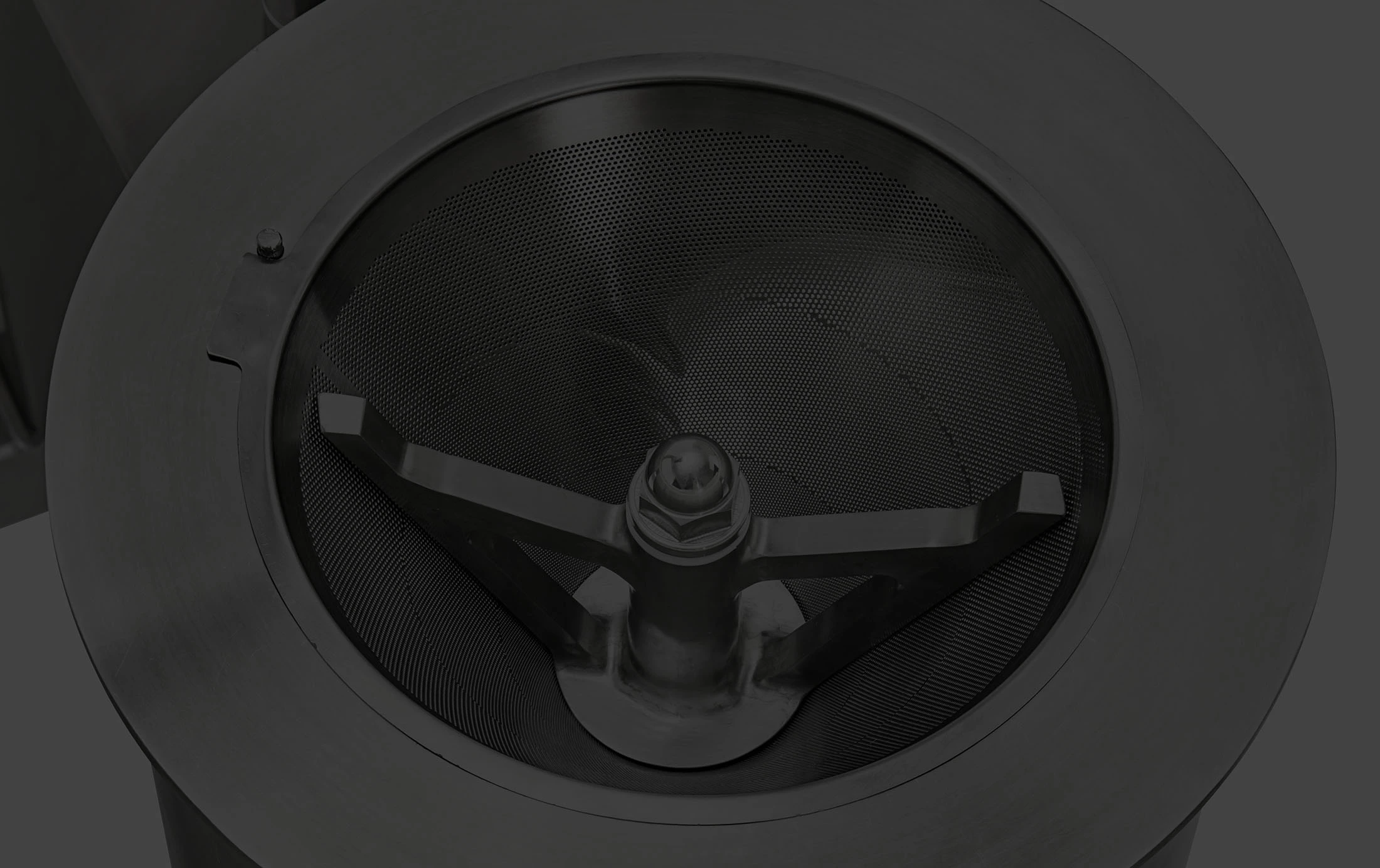The dry milling step, also referred to as the calibration phase, follows the fluid bed drying stage in the wet granulation process. This final part of the wet granulation process, commonly used by manufacturers of pharmaceuticals ensures powders meet the target particle size distribution (PSD) for compression and tableting into pharmaceutical Oral Solid Dosage products.
Dry Milling Pharmaceutical Powders
Following the wet milling step, granulates are dried using a fluid bed dryer (FBD) to achieve a uniform moisture content. These dried granules may contain agglomerates and fines that need to be milled again before they can be fed into tablet presses or sachet and capsule fillers.
The goal of dry milling is to break down any agglomerates that are formed during the drying step and re-establish the PSD by passing the powders through a milling screen.
A range of mills may be used, yet the objective remains to break down larger clumps whilst minimizing the amount of fines. This means that the screen size, rotor speed and feed rate of the mills must be adjusted to meet the target PSD.
Impact of Dry Milling on Tablet Compaction and Dissolution
In the pharmaceutical industry, particle size distribution impacts the quality and efficacy of oral solid dosage forms, affecting flowability, compressibility, and dissolution rate. Achieving the desired PSD ensures uniform, consistent drug delivery, and proper dissolution, with the dry milling step being key as the final method to achieve these outcomes.
Properly calibrated particles ensure that tablets can be compacted with the right balance of hardness and friability, reducing the risk of capping or lamination during manufacturing. This balance is vital for maintaining the integrity of the tablet during packaging, transport, and storage.
Overcoming Challenges in OSD Manufacturing
Manufacturers of OSD pharmaceutical products face a range of challenges that can be addressed during the milling step of the wet granulation process. These include:
- Consistent particle size - this is needed to ensure consistent dosage and prevent segregation of ingredients
- Compliance and regulation - cGMP and FDA regulations are increasingly strict, requiring sterile processes that minimize the risk of contamination.
- Formulation - many modern APIs have poor solubility and stability issues such as moisture- and heat-sensitivity.
- Maintaining high quality results - overcoming the challenges above can prove difficult for manufacturers to achieve whilst consistently producing a robust, high-quality end product.
Quadro equipment is widely recognized as a leading solution for the dry milling stage in the wet granulation process. The Quadro® Comil® is renowned for its ability to deliver precise and consistent particle size distribution, necessary for effective tablet compaction and dissolution.
One key advantage of Quadro mills is their capability to handle a wide range of materials, including heat-sensitive ones. Our mills' advanced design ensures that the powders are processed gently, preventing thermal degradation and preserving the quality of the APIs.
Our equipment is designed to offer flexibility and control, enabling manufacturers to tailor the milling process according to specific production needs. That's why the Quadro® Comil® features unique tooling options, variable impeller tip speeds, and RPM control, further enhancing the milling process's flexibility and ensuring consistent output quality. In addition, our extensive range of screens and tooling options enables us to help customers select the right tools for their process and ingredients.
The Comil® design considers infeed diameter and feeding methods, facilitating efficient processing to keep production costs down.
Quadro Powder Milling & Sizing Equipment, with its advanced features and reliable performance, offers a comprehensive solution for this critical stage. It ensures consistent product quality and regulatory compliance.

